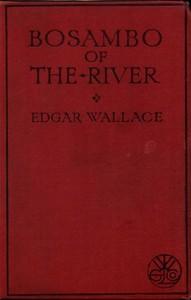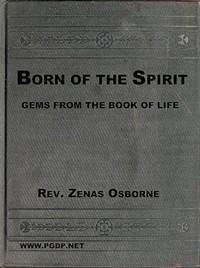Read this ebook for free! No credit card needed, absolutely nothing to pay.
Words: 14269 in 3 pages
This is an ebook sharing website. You can read the uploaded ebooks for free here. No credit cards needed, nothing to pay. If you want to own a digital copy of the ebook, or want to read offline with your favorite ebook-reader, then you can choose to buy and download the ebook.
CREED AND DEED
A SERIES OF DISCOURSES
PREFATORY NOTICE.
In giving this volume to the public I gladly embrace the opportunity of expressing my sincere gratitude to those faithful and self-sacrificing friends whose indefatigable labors have gone so far to win for a hazardous venture the promise of assured permanence and satisfactory development.
Felix Adler.
New York, September, 1877.
CREED AND DEED
"not by the Creed but by the Deed."
The Spciety which I have the privilege of addressing, has been organized with the above for its motto. Some of my hearers have entirely abandoned the tenets of the positive religions; others continue to hold them true, but, are discouraged by the lack of spiritual force, the prominence given to mere externals, the barren formalism in the churches and synagogues. We agree in believing that theology is flourishing at the expense of religion. It seems to us that differences in creed are constantly increasing, and will continue to multiply with the growth and differentiation of the human intellect. We perceive that every attempt to settle problems of faith has thus far signally failed, nor can we hope for better results in the future. Certainty even with regard to the essential dogmas appears to us impossible. We do not therefore deny dogma, but prefer to remit it to the sphere of individual conviction with which public associations should have no concern. Far from believing that the doctrines of religion as commonly taught are essential to the well being of society, we apprehend that the disputes concerning the "author of the law" have diverted the attention of men from the law itself, and that the so-called duties toward God too often interfere with the proper performance of our duties toward one another. It were better to insist less upon a right belief, and more upou right action.
In order to find a common basis whereon good men, whether believers or unbelievers can unite, we look to the moral law itself, whose certainty rests in the universal experience of civilized Humanity. We shall hold questions of faith in abeyance, shall endeavor to stimulate the conscience and to this end shall seek to awaken an interest in the grave social problems of our day, which need nothing so much as a vigorous exertion of our moral energies, in order to arrive at a peaceable solution. To broaden and deepen the ethical sentiment in ourselves, and to hold up to the sad realities of the times, the mirror of the ideal life, is the object with which we set out. We do not therefore delude ourselves with the hope that the ideal will ever be fully realized, but are convinced that in aspiring to noble ends the soul will take on something of the grandeur of what it truly admires. Starting with the assumption that the doctrines of religion are incapable of proof, it behooves us to show in one or more instances the fallacy of the arguments upon which they are commonly founded, and we shall begin with the doctrine of IMMORTALITY.
In approaching our subject we are first confronted by the argument from the common consent of mankind. Like the belief in God, the hope of immortality is said to be implanted in every human heart, and the experience of travellers is cited to show that even the most barbarous races have given it expression in some form, however crude. Aside from the fact that the statement, as it stands, is somewhat exaggerated, we will admit that the belief in a future state is widely current among savage tribes. But the value of this testimony becomes extremely doubtful on closer inspection. A brief account of the origin of the conception of soul among our primitive ancestors, will make this plain.
If we observe a child in its sleep, some half articulate word, some cry or gesture occasionally reveals to us the vividness of the dreams with which the little brain is teeming. It is hardly doubtful that the child mistakes the visions of its dream for actual occurrences, and attaches the same reality to these miasmas of the stagnant night as to the clear prospects of daylight reason. Even the adult sometimes finds it difficult to clear his brain of the fancies which occupied it in the hours of sleep. And the test of large experience can alone enable him to distinguish between fact and phantom. I call attention to these facts, because the phenomena of sleep and dreams seem to offer a satisfactory clue to the naive theories of the lower races concerning death and the after life. The savage indeed is the veritable child-man. His ardent emotions, his crude logic, the eagerness with which he questions the how and wherefore of nature, and the comparative ease with which his simple understanding accepts the most fanciful solutions, all combine to place him on the level of the child.
Free books android app tbrJar TBR JAR Read Free books online gutenberg
More posts by @FreeBooks

: Stories from the Trenches: Humorous and Lively Doings of Our 'Boys Over There' by Case Carleton B Carleton Britton - World War 1914-1918 Anecdotes


: The Boyhood of Jesus by Anonymous - Jesus Christ Biography Juvenile literature; Bible stories English New Testament Juvenile literature








